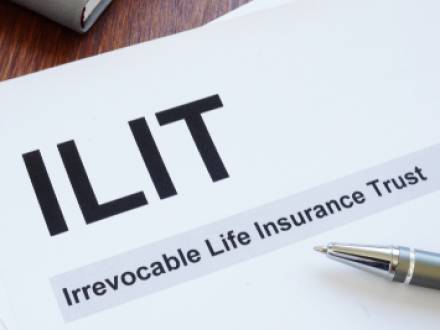Recent Blog Posts
How Long Does It Take to Establish Guardianship in Texas?
 In Texas, establishing guardianship usually takes between 30 and 90 days. However, the timeline can vary depending on the court, the type of guardianship, and whether the case involves a minor or an incapacitated adult.
In Texas, establishing guardianship usually takes between 30 and 90 days. However, the timeline can vary depending on the court, the type of guardianship, and whether the case involves a minor or an incapacitated adult.
Guardianship is often needed when someone cannot safely manage their personal or financial affairs, such as an elder with dementia or a child whose parents are unable to provide care. The need for guardianship is growing as the population ages. According to the U.S. Census Bureau, the number of Americans age 65 and older reached 61.2 million, reflecting a continued increase in older adults who may need legal protection and assistance.
When Does a Mistake Become a Breach of Fiduciary Duty?
 Not every mistake made by an executor, trustee, or agent is a breach of fiduciary duty. Texas law recognizes that people handling estates and trusts are human and can make reasonable errors. A mistake becomes a breach when the fiduciary violates their legal duties, acts in their own interest, or fails to act with the care the law requires.
Not every mistake made by an executor, trustee, or agent is a breach of fiduciary duty. Texas law recognizes that people handling estates and trusts are human and can make reasonable errors. A mistake becomes a breach when the fiduciary violates their legal duties, acts in their own interest, or fails to act with the care the law requires.
This issue is especially important in cases involving an elderly family member who relies on others to manage the estate. In 2025, local reporting in the San Antonio area highlighted that elder abuse and financial exploitation investigations remain alarmingly common.
As of 2026, Texas courts continue to closely examine fiduciary conduct in probate and trust cases, particularly when beneficiaries allege harm involving an elder or other vulnerable individual. A San Antonio, TX probate litigation lawyer can help determine when conduct crosses the legal line.
Choosing Between Guardianship and Medical Power of Attorney
 As loved ones age, many families take steps to plan ahead by setting up powers of attorney and other advance directives. These documents ensure that someone can make important decisions if a loved one becomes unable to do so.
As loved ones age, many families take steps to plan ahead by setting up powers of attorney and other advance directives. These documents ensure that someone can make important decisions if a loved one becomes unable to do so.
However, there are situations where these estate planning tools are not enough. Sometimes, guardianship becomes necessary even when advance planning was done correctly.
Understanding when guardianship may be required can help families prepare for difficult decisions. If you are considering guardianship for someone you love in 2026, contact our San Antonio elder law attorneys today.
The Difference Between Guardianship and Medical Power of Attorney
While a medical power of attorney only activates in specific situations defined by the document, guardianship provides ongoing authority. Guardianship authority begins after a court determines incapacity.
Estate Planning After Your Second Marriage
 Many people put off updating their estate plans after remarriage, but this delay can create serious problems. Without proper planning, Texas law decides who gets your assets, and the results might surprise you.
Many people put off updating their estate plans after remarriage, but this delay can create serious problems. Without proper planning, Texas law decides who gets your assets, and the results might surprise you.
Taking control of your estate plan now prevents family conflict and ensures your wishes are honored. Our San Antonio, TX estate planning attorney can help you ensure your beneficiaries and values are accurately reflected in your estate plan.
Removing Your Ex-Spouse From Estate Planning Documents After Divorce
The first thing most people do after divorce is remove their former spouse from every legal document. Check every financial account, insurance policy, and beneficiary designation. Your ex-spouse might still be listed as the person who inherits your 401(k) or life insurance proceeds, and banks and insurance companies do not automatically remove ex-spouses. You must file new beneficiary designation forms for each account.
What Are the Different Types of Guardianships in Texas?
 When an aging parent or loved one can no longer safely manage their health, finances, or daily care, families face difficult choices. In Texas, one of the most effective ways to protect a vulnerable adult is through a legal guardianship. This is a court-supervised relationship where a guardian is appointed to make decisions for another person, known as the ward.
When an aging parent or loved one can no longer safely manage their health, finances, or daily care, families face difficult choices. In Texas, one of the most effective ways to protect a vulnerable adult is through a legal guardianship. This is a court-supervised relationship where a guardian is appointed to make decisions for another person, known as the ward.
Understanding the different types of guardianships can help families choose the right level of protection without taking away more independence than is necessary. With over 20 years of experience focused on guardianship and elder law, our San Antonio guardianship lawyer guides families through these complex and emotional situations.
What Is Guardianship?
In Texas, a guardianship is a legal arrangement made by a court under the Texas Estates Code, allowing one person (the guardian) to make certain decisions for another person (the ward). This process is used when an adult becomes incapacitated due to dementia, a disability, or another condition.
When Can You Challenge a Power of Attorney in Texas?
 As loved ones age, families often use Powers of Attorney (POA) to manage money, health care, and other needs. But sometimes, these documents are abused or created under unfair conditions. In Texas, you may be able to challenge a POA if you believe your elderly loved one’s rights or safety are at risk. Speak to a San Antonio elder law attorney to understand how you can protect your family member.
As loved ones age, families often use Powers of Attorney (POA) to manage money, health care, and other needs. But sometimes, these documents are abused or created under unfair conditions. In Texas, you may be able to challenge a POA if you believe your elderly loved one’s rights or safety are at risk. Speak to a San Antonio elder law attorney to understand how you can protect your family member.
What Is a Power of Attorney?
A Power of Attorney (POA) is a legal document that lets one person, the ‘agent,’ make decisions for another person, the ‘principal.’ In elder law, these documents are often used so that adult children or trusted relatives can step in to help manage finances or health care for an aging parent.
Texas law, particularly the Texas Estates Code, Chapter 751, recognizes several types of Powers of Attorney. The most common is the Statutory Durable Power of Attorney, which allows an agent to handle financial matters.
What Do I Need in a Basic Estate Plan?
 If you live in Texas and do not yet have an estate plan, you are not alone. Many young parents, professionals, and even established families delay estate planning because they believe it is only for the wealthy or elderly.
If you live in Texas and do not yet have an estate plan, you are not alone. Many young parents, professionals, and even established families delay estate planning because they believe it is only for the wealthy or elderly.
In reality, a basic estate plan is important for anyone who wants to protect their family, control what happens to their property, and avoid unnecessary legal hurdles in the future. With 20 years of experience in private practice, our San Antonio wills and trusts attorneys can help you get started on a smart estate plan that protects your family and your values.
Why Start an Estate Plan Now?
Life is unpredictable. Without an estate plan, Texas probate law decides what happens to your assets and who will care for your children if something happens to you. That can create stress, legal costs, and even disputes among your loved ones. Taking the time to put a plan in place gives you control and provides your family with clarity during a difficult time.
What If There Is No Named Guardian for Your Minor Child in Texas?
 No parent wants to think about a future where they are not around to raise their child, but planning for the unexpected is one of the most important acts of love and responsibility you can do. In Texas, naming a guardian for your minor child in your will or estate plan helps ensure that your child will be raised by someone you trust. To learn more, speak with a qualified San Antonio, TX family law attorney.
No parent wants to think about a future where they are not around to raise their child, but planning for the unexpected is one of the most important acts of love and responsibility you can do. In Texas, naming a guardian for your minor child in your will or estate plan helps ensure that your child will be raised by someone you trust. To learn more, speak with a qualified San Antonio, TX family law attorney.
Who Takes Care of Your Child If You Do Not Name a Guardian in Texas?
If you do not name a guardian and both parents pass away or become incapacitated, a Texas court will step in to determine who should care for your child. Under Texas Estates Code § 1104.051, the court is tasked with selecting a guardian who will act in the child’s best interests. This might sound straightforward, but it can become a complicated and emotional process.
Alternatives to Guardianship in Texas
 When a family member begins struggling with cognitive decline, disability, or other challenges that affect their decision-making abilities, many people immediately think of guardianship as the solution. However, guardianship has its downsides. It removes fundamental rights from an individual, including the right to make decisions about their own life, finances, and healthcare. The court process can also be lengthy, expensive, and emotionally difficult for families. If an older relative is incapable of making decisions, there are less restrictive alternatives out there that can be used alone or in tandem to provide necessary protection while preserving as much independence and dignity as possible. An experienced San Antonio, TX guardianship attorney can advise you on alternatives to guardianship for your loved ones.
When a family member begins struggling with cognitive decline, disability, or other challenges that affect their decision-making abilities, many people immediately think of guardianship as the solution. However, guardianship has its downsides. It removes fundamental rights from an individual, including the right to make decisions about their own life, finances, and healthcare. The court process can also be lengthy, expensive, and emotionally difficult for families. If an older relative is incapable of making decisions, there are less restrictive alternatives out there that can be used alone or in tandem to provide necessary protection while preserving as much independence and dignity as possible. An experienced San Antonio, TX guardianship attorney can advise you on alternatives to guardianship for your loved ones.
How Does Guardianship Work in Texas?
Guardianship is a legal arrangement whereby the court appoints someone (the guardian) to make decisions for another person (the ward) who cannot legally make those decisions for themselves due to incapacity, disability, or other impairments. The court appoints an individual to represent the ward's interests. If guardianship is granted, the guardian must post bond, file annual reports, and seek court approval for major decisions.
Benefits of Life Insurance Trusts for Seniors
 Estate planning is not a one-size-fits-all endeavor. Seniors have a broad range of options for ensuring that the assets they worked to attain during their lifetime are protected after their passing and that their family members are taken care of as well. One of the tools that can be incorporated into a senior citizen’s estate plan utilizes life insurance to protect assets for the future. The specific instrument utilized to do this is called the Irrevocable Life Insurance Trust (ILIT), and it is a powerful way to protect your future. An experienced San Antonio, TX estate planning attorney can advise you on whether incorporating a life insurance trust into your estate plan is the right option for you.
Estate planning is not a one-size-fits-all endeavor. Seniors have a broad range of options for ensuring that the assets they worked to attain during their lifetime are protected after their passing and that their family members are taken care of as well. One of the tools that can be incorporated into a senior citizen’s estate plan utilizes life insurance to protect assets for the future. The specific instrument utilized to do this is called the Irrevocable Life Insurance Trust (ILIT), and it is a powerful way to protect your future. An experienced San Antonio, TX estate planning attorney can advise you on whether incorporating a life insurance trust into your estate plan is the right option for you.
What is an ILIT?
An ILIT is a trust that holds your life insurance. Because it is irrevocable, an ILIT may not be amended or terminated once it is created, except in rare cases and with the beneficiaries’ consent. When you set up an ILIT, you transfer ownership of your life insurance to the trust, and the trust becomes the beneficiary of the life insurance.







